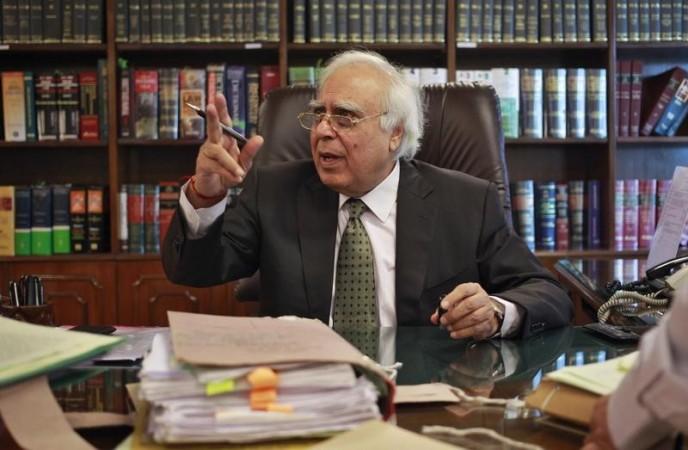
The Supreme Court on Wednesday asked the All India Muslim Personal Law Board (AIMPLB) and its counsel Kapil Sibal whether it was possible to give the bride the right to decline triple talaq at the time of the execution of the nikahnama. The court also asked whether a "modern and model nikahnama" could be put in place "to provide for talaq."
"Why can't there be a modern and model nikahnama to provide for talaq? Can you ask your Qazis to have a model nikahnama? The new nikahnama can also do away with instant triple talaq and nikahnama," the SC told AIMPLB. The court also asked the board if the Qazis at the ground level would follow its advisory to which the AIMPLB's lawyer Yusuf Muchala replied that the Qazis are not mandated to follow the board's advisory.
Muchala added that the AIMPLB accepts the suggestions of the apex court with all humility and that it will look into it. The board also presented before the SC a resolution which said that the practice of triple talaq was a sin and that the Muslim community should boycott those who still follow the practice. The resolution was passed on April 14, 2017.
The AIMPLB lawyer also said that the board accepts the suggestions in all humility and will look into it. AIMPLB also showed SC a resolution passed on 14 Apr 2017 which says triple talaq is a sin and community should boycott person doing it.
Triple talaq issue of faith: Kapil Sibal
Senior advocate Kapil Sibal had told the apex court on Tuesday that the practice of triple talaq forms a part of faith under the Muslim law that has continued for centuries. He argued that it, therefore, cannot be tested by the apex court on the yardstick of violation of the fundamental rights guaranteed under the Constitution.
Sibal, who represented the AIMPLB, referred to Article 371A of the Constitution, which guarantees protection when it comes to matters of practice and customs of communities. He used the example of Lord Ram's birth in Ayodhya being a faith to defend triple talaq.
"That Ram was born in Ayodhya is a matter of faith, not Constitutional morality. Same is the case (with triple talaq)...The Constitution of India recognises 'personal law' of all religious denominations being communities and protects their faith by making them immune from challenge under Part III of the Constitution," Sibal told the five-judge Constitution bench on Tuesday.

"Triple talaq is there since 637. Who are we to say that this is un-Islamic. Muslims are practising it for last 1,400 years. It is a matter of faith. Hence, there was no question of constitutional morality and equity," he added.
The SC is hearing seven petitions, five of which have been filed by Muslim women, challenging the practice of triple talaq, polygamy and nikah halala within the Muslim community. The bench is headed by CJI Khehar and also comprises Justices Kurien Joseph, UU Lalit, RF Nariman and Abdul Nazeer.
Sibal, however, agreed with fellow AIMPLB counsel Muchhala's argument that triple talaq was "undesirable." Muchhala told the apex court that the practice "is an undesirable form of divorce. We are trying to educate people. We are working on it and we are advising people not to resort to the practice." Sibal agreed with him, saying: "We are not saying it is permanent or immutable. We are aware of the need to change. But we will do it in our own way. It is not for someone else to tell (us) what it is."
Sibal also referred to discrimination in Hindu law to support his defence of triple talaq. He said that the Dowry Prohibition Act of 1961 has put a ban on the practice of giving dowry to the groom's family during marriage. However, the Act does allow parents to give gifts to their daughters and therefore, this practice is continuing. "In case of Hindu law, you protect all customs. In case of Muslim law, you will say it violates provisions of the Constitution," Sibal told the court.
Justice Joseph asked why messengers needed to improvise on the practice if the Quran had already specified the divorce procedure. "Talaq is separation, which is conceived and well explained in the Koran. Then why go for anything else..What was the need for the messenger to lay down something when it is actually given in Koran," Joseph sought to know.
When Sibal replied saying that he did not know how to answer the question, Justice Joseph said that he was only trying to understand whether triple talaq was added to meet the need of the hour, which may not even exist in today's time.















